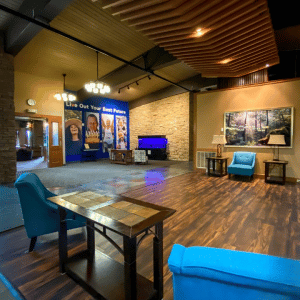Mental health disorders and substance use disorders often exist side by side, creating a complex web of symptoms that can be difficult to untangle. When someone experiences both conditions simultaneously, they require specialized care known as dual diagnosis treatment.
Understanding Dual Diagnosis
Dual diagnosis refers to the co-occurrence of a mental health disorder alongside a substance use disorder. This condition affects millions of Americans, with the Substance Abuse and Mental Health Services Administration reporting that nearly 9.2 million adults experience co-occurring disorders each year.
The relationship between these conditions is intricate. Sometimes, substance use begins as an attempt to self-medicate symptoms of an undiagnosed mental health condition. In other cases, prolonged substance use alters brain chemistry, contributing to the development of mental health disorders. Regardless of which condition developed first, both require simultaneous treatment for recovery to be successful.
Common Co-occurring Conditions
Several mental health disorders frequently accompany addiction, including:
Depression presents unique challenges when paired with substance use. The persistent feelings of hopelessness often drive continued substance use, while substances like alcohol (a depressant) can worsen depressive symptoms.
Anxiety disorders commonly accompany addiction as people seek relief from overwhelming worry through substance use. Unfortunately, many substances ultimately increase anxiety during withdrawal, creating a harmful cycle.
Post-traumatic stress disorder (PTSD) shares a strong connection with substance use disorders. Many individuals with trauma histories use substances to numb painful memories or manage hypervigilance symptoms.
Bipolar disorder, characterized by dramatic mood swings between depression and mania, presents particular challenges when co-occurring with substance use. During manic phases, impulsivity may lead to increased substance use, while depressive phases might trigger self-medication.

Why Traditional Treatment Often Falls Short
Traditional addiction treatment programs that don’t address underlying mental health conditions often see high relapse rates. Similarly, mental health treatment that doesn’t account for substance use fails to provide comprehensive care.
When only one condition receives attention, the untreated condition typically undermines recovery efforts. For instance, untreated depression may lead someone to relapse as they attempt to alleviate persistent depressive symptoms through substance use.
The Integrated Treatment Approach
Dual diagnosis treatment centers like The Bluffs employ an integrated treatment model that addresses both conditions simultaneously through a coordinated approach. This comprehensive model recognizes that mental health and substance use disorders are intertwined and must be treated together.
Specialized Assessment Process
Effective dual diagnosis treatment begins with a thorough assessment process. Clinicians with expertise in both addiction and mental health conduct comprehensive evaluations to identify all present conditions and their severity. This may include:
- Psychiatric evaluations
- Medical history reviews
- Substance use assessments
- Psychological testing
- Trauma screening
This detailed assessment provides the foundation for a personalized treatment plan that addresses all aspects of a person’s health.
Medication Management
Many dual diagnosis patients benefit from appropriate medication management. Psychiatric medications help stabilize mental health symptoms, making it easier for patients to engage in therapeutic work and recovery activities.
For some substance use disorders, medication-assisted treatment (MAT) provides relief from cravings and withdrawal symptoms. When mental health medications and addiction medications are managed together by a knowledgeable medical team, patients receive truly integrated care.
Effective Therapeutic Approaches
Several therapeutic approaches have proven particularly effective for dual diagnosis treatment:
Cognitive-behavioral therapy (CBT) helps patients identify and change harmful thought patterns that contribute to both mental health symptoms and substance use behaviors.
Dialectical behavior therapy (DBT) teaches emotional regulation, distress tolerance, and mindfulness skills that benefit those with co-occurring disorders.
Trauma-informed therapies address underlying traumatic experiences that often contribute to both conditions.
Group therapy provides peer support and reduces the isolation that often accompanies co-occurring disorders.
Family therapy helps repair relationships damaged by addiction while creating a supportive environment for ongoing recovery.
Long-term Coordinated Care
Recovery from co-occurring disorders requires long-term, coordinated care. After the initial intensive treatment phase, ongoing support might include:
- Outpatient therapy
- Psychiatric medication management
- Peer support groups
- Recovery coaching
- Case management
- Relapse prevention planning
This continuum of care provides the sustained support necessary for long-term recovery from dual diagnosis conditions.
Dual Diagnosis Treatment at The Bluffs
At The Bluffs, we understand the complex nature of co-occurring disorders and provide specialized dual diagnosis treatment delivered by professionals trained in both mental health and addiction care. Our treatment approach recognizes that each person’s experience with co-occurring disorders is unique, requiring personalized treatment plans.
Our integrated treatment teams include addiction specialists, psychiatrists, therapists, and medical professionals who work together to provide comprehensive care that addresses all aspects of a person’s health. This collaborative approach ensures that mental health treatment and addiction recovery support each other rather than operating as separate processes.
We create an environment where patients feel comfortable discussing both their mental health symptoms and substance use concerns without judgment. This open communication allows for more effective treatment and better outcomes.
Begin Your Journey to Comprehensive Healing
Recovery from co-occurring disorders is possible with the right treatment approach. By addressing both conditions simultaneously, dual diagnosis treatment provides the comprehensive care needed for lasting recovery.
If you or a loved one is struggling with both mental health and substance use disorders, contact The Bluffs today at 850-374-5331 to learn more about our specialized dual diagnosis treatment programs. Our compassionate admissions team will guide you through the first steps toward healing both conditions and reclaiming your life.








